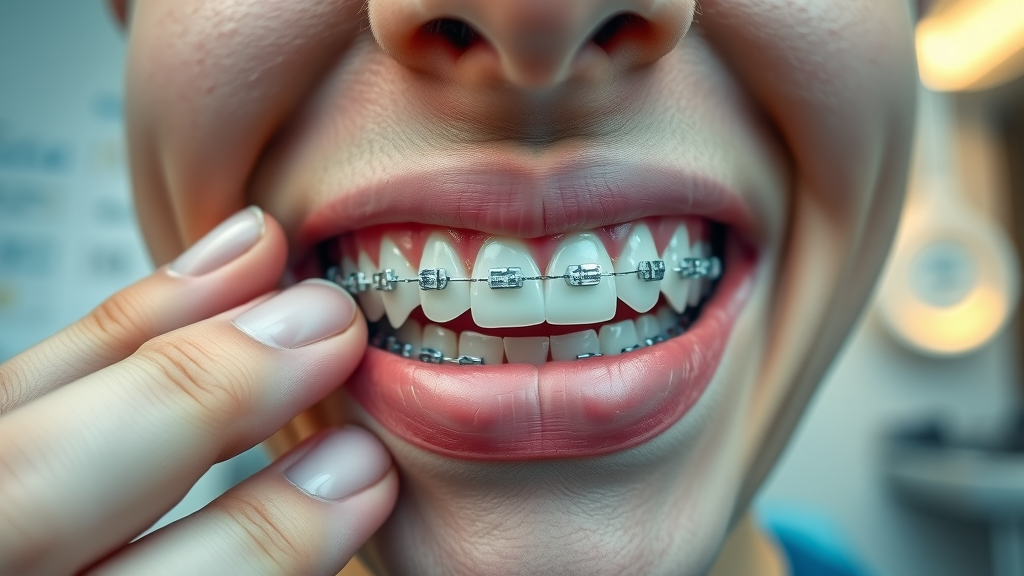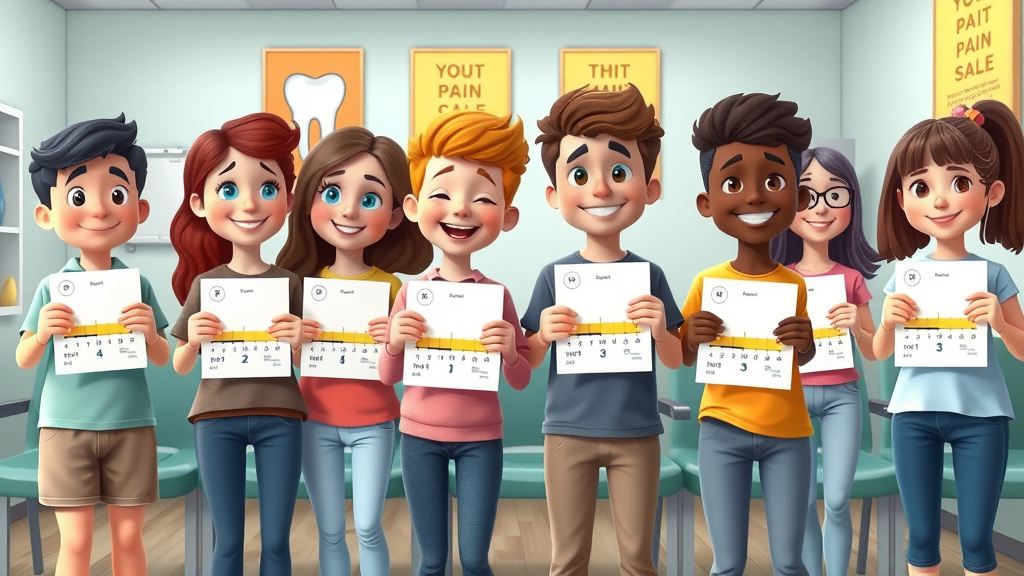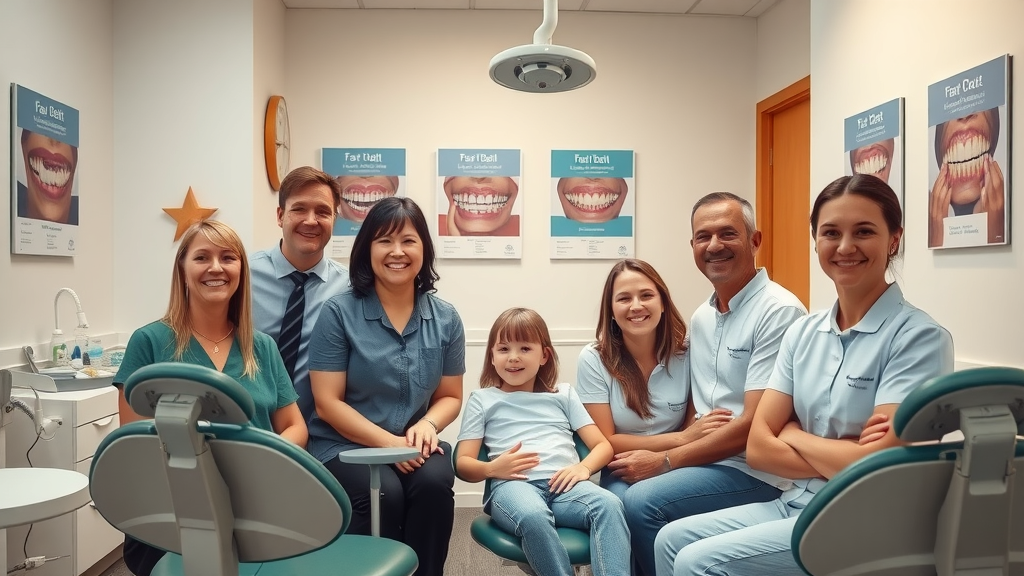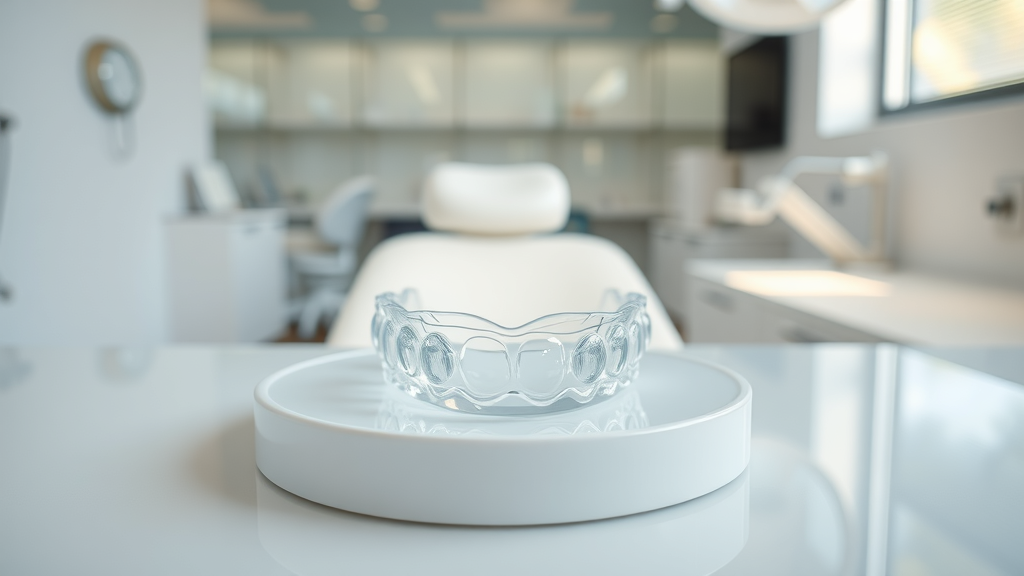Are you about to get braces or supporting someone who is—and feeling anxious about the pain? You're not alone. Do braces hurt? is the question on everyone's mind before their first orthodontic appointment. The good news is, braces pain is temporary, manageable, and often not as alarming as you might think . In this article, you'll uncover the truth about braces pain, explore expert advice, debunk common myths, and learn actionable pain relief strategies—all in straightforward language designed just for you.
Do Braces Hurt? Unpacking the Truth Behind Braces Pain
"Ever wondered 'do braces hurt?' You're not alone. Millions experience the same worries. Let's explore what wearing braces really feels like—straight from dental experts and patient stories."
- Myth: Braces are unbearably painful. Fact: Most people only experience mild discomfort after initial placement and adjustments.
- Myth: All pain lasts for months. Fact: Discomfort typically fades quickly as your mouth adjusts.
- Myth: Braces pain is constant. Fact: Most discomfort occurs after certain orthodontic appointments or wire changes.

- Immediate discomfort: You might feel pressure or soreness right after your braces are put on or tightened. This is normal and usually fades within a few days.
- Delayed discomfort: Some people notice mild pain days later as their teeth and gums adjust to the movement caused by the new brackets and wires.
"While everyone experiences braces pain differently, understanding the typical sensations can help you prepare mentally and physically for your orthodontic journey."
What You’ll Discover in This Guide about Braces Pain
- The science behind why braces hurt
- Stages of pain and discomfort during your orthodontic treatment
- Evidence-based pain relief and home remedies
- Expert perspectives from orthodontists and real patients
By the end of this guide, you'll know exactly what to expect during key stages of your orthodontic treatment , how to ease braces pain with practical solutions, and when to contact your orthodontist for support. We’ll also answer the most common questions about braces pain , straight from experts and patients. Let’s get started.
What Causes Braces Hurt? Understanding the Source of Discomfort
Initial Discomfort After Braces Put: What to Expect
- Braces put —the process of attaching brackets and wires—creates gentle pressure needed to move your teeth. This new tension can lead to initial discomfort .
- Physiologically, your teeth and gums are reacting to minor inflammation, which is a sign that your braces are working.
- Typical reactions include sensitive teeth, slight aching gums, and occasional headaches as your mouth adjust to the dental braces.
"Initial discomfort is a sign your new dental braces are moving your teeth into place – and it won’t last forever."
| Stage | Duration | Typical Sensations |
|---|---|---|
| Placement | 1-3 days | Pressure, mild discomfort, soreness |
| Post-Adjustment | 1-2 days | Tenderness, mild to moderate pain, sensitivity to biting |
| Monthly Tightening | 24-48 hours | Soreness, dull ache |
| After Eating | Temporary | Sharp or aching pain, especially with hard/chewy foods |
| Long-Term | Weeks to months | Minimal or no pain, occasional mild irritation |

How Long Do Braces Hurt? Timelines and What to Expect
Acute vs. Ongoing Braces Pain: Understanding Duration
- Factors: Level of discomfort depends on age, pain sensitivity, and which phase of orthodontic treatment you're in. Younger patients often experience less pain as their teeth and bones are still developing.
- Phases of pain: Most people feel discomfort immediately after getting braces put and for a day or two after each tightening appointment . The braces pain will usually ease off quickly as your mouth adjusts .
- Managing pain: Eating soft foods and using pain relievers can ease symptoms. After a few adjustment cycles, you’ll likely notice less discomfort overall thanks to your increased tolerance.
It’s important to remember that while braces hurt at first, most people adapt quickly. During especially tough days, take advantage of cooling snacks, over-the-counter pain medication , and home remedies to mitigate acute pain. Persistent, severe pain is not normal and should be discussed with your orthodontist.
How Painful Is Braces on a Scale of 1 to 10? Real Patient Experiences
Patient Ratings of Braces Pain
- Survey results show that most people rate their initial discomfort from braces put as a 3 to 6 out of 10. This range aligns with the pressure needed for teeth movement, but it can vary according to individual pain thresholds.
- Adolescents tend to report lower pain scores, while adults sometimes rate the experience higher due to denser bone structures and slower adaptation.
"Most people rate initial braces pain between 3 and 6, but it’s highly individual."

- Most braces pain is manageable and subsides within days, but pain that is sharp, constant, or worsens over time could indicate a loose wire or bracket , infection, or other issues. This is when you should contact your orthodontist .
| Situation | Average Pain Rating (1-10) | When to Seek Help |
|---|---|---|
| Initial Placement | 3-6 | If pain worsens after 3 days |
| After Tightening | 2-5 | If unable to chew or severe swelling occurs |
| Everyday Wear | 0-2 | If any new or unexplained pain |
| Broken Bracket/Wire | Varies | Immediate orthodontist appointment |
Do They Numb You for Braces? Understanding Dental Braces Procedures
The Braces Put Experience: What Really Happens
- Anesthesia facts: Routine braces put does not require local anesthesia, as the process involves attaching brackets with dental adhesive , not puncturing the tissue.
- Comfort measures: Orthodontists use professional grade tools for gentle, accurate placement of dental braces . Friendly reassurance and clear communication further help put patients at ease.
- Post-procedure: You receive care instructions, tips for managing post-procedural tenderness, and advice on foods to avoid. Minor soreness is normal, but severe pain is unusual.

Are Braces Worth the Pain? The Benefits of Dental Braces
Long-Term Outcomes of Wearing Braces
- Improved oral health: Dental braces help straighten teeth, making them easier to clean and lowering the risk of gum disease, cavities, and jaw issues.
- Confidence and function: Many people report higher self-esteem, clearer speech, and improved bite function after their orthodontic journey .
"The temporary discomfort of braces hurt is far outweighed by a lifetime of healthy smiles."

Top 7 Braces Pain Relief Tips: Easing Discomfort at Home
Home Remedies for Braces Hurt Relief
- Orthodontic wax: Apply to any irritated spots where brackets and wires rub against your cheeks or lips.
- Over-the-counter pain relievers: Products containing acetaminophen or ibuprofen (with parent/doctor guidance) can offer fast pain relief for tough days.
- Cold compresses: Apply to cheeks when soreness strikes for natural numbing and reduced swelling.
- Rinsing with warm salt water: Soothes sores and gently disinfects the mouth after braces put .
- Soft food diet: Enjoy puddings, yogurt, soups, eggs, and other easy-to-chew foods, especially after an adjustment.
- Gentle mouth exercises: Slow stretching or massaging the cheeks can reduce tension and pain.
- Good oral hygiene: Brush and floss carefully to avoid infection, which could increase pain or discomfort.
"Simple home remedies can make all the difference in easing the pain of wearing braces."

When to Contact Your Orthodontist About Braces Hurt
Signs You Shouldn’t Ignore
- Red flags: Severe pain, swelling, persistent sores, bleeding, or a broken wire or bracket are all reasons to call your orthodontist immediately.
- Your orthodontic provider can adjust your braces, fix hardware, or recommend a stronger pain reliever to keep your treatment on track and pain free.
If your pain or discomfort does not improve with pain relief measures or you’re unsure whether your symptoms are normal, it’s always better to contact your orthodontist sooner rather than later. They have the experience to keep you safe and comfortable on your orthodontic journey .
People Also Ask About Braces Hurt and Pain Relief
How long do braces hurt?
- Most braces pain lasts a few days to a week after braces put or each adjustment appointment. As your mouth adjust to the pressure, future discomfort usually lessens.
How painful is braces on a scale of 1-10?
- For most people, braces hurt at a mild to moderate level (3-6), though the sensation depends on your pain sensitivity and oral health status. Extreme or persistent pain is rare and should be addressed with your orthodontist.
Do they numb you for braces?
- Numbing is rarely used during braces put . The procedure is gentle, minimally invasive, and usually does not require anesthesia. If you anticipate extreme anxiety or sensitivity, discuss options for comfort with your provider.
Are braces worth the pain?
- Absolutely. The temporary discomfort is fleeting compared to the lifelong health, function, and confidence benefits gained from properly aligned teeth and improved oral health .
Frequently Asked Questions on Do Braces Hurt?
-
Can I eat normally after getting dental braces?
You might want to stick to soft foods like mashed potatoes, yogurt, and scrambled eggs for the first few days. Once soreness fades, you can gradually return to a more varied diet—avoiding very hard, sticky, or chewy foods that could damage your brackets and wires . -
What foods should I avoid during the pain phase of braces?
Stay away from popcorn, tough meats, caramel, gum, and crunchy raw vegetables for the first week, especially when braces hurt the most. These foods can worsen irritation or even break your brackets and wires . -
Are there alternatives to braces that hurt less?
Invisalign or clear aligners and certain removable appliances may offer a more comfortable alternative with gentler pressure, though some mild discomfort is still common during tooth movement. -
How do Invisalign pain levels compare to traditional braces?
Most people describe Invisalign pain as a mild pressure, usually less intense than traditional braces pain . Still, every patient is different—consistent wear of aligners is needed to see results.
Ready for a Pain-Free Braces Journey?
- Subscribe to Grand Strand Smile Spotlight for more expert-backed answers about braces, Invisalign, and local orthodontic care.
Takeaways: Use wax, pain relievers, soft foods, good oral care, and don’t hesitate to contact your orthodontist for acute pain.
For a comprehensive understanding of braces pain and effective relief strategies, consider exploring the following resources:
- “Do Braces Hurt? Your Comprehensive Guide to Managing Orthodontic Pain” ( aaoinfo.org )
This guide from the American Association of Orthodontists offers detailed insights into the causes of braces discomfort and provides practical tips for alleviating pain during orthodontic treatment.
- “Do Braces Hurt? What to Expect When You Get Braces” ( medicalnewstoday.com )
Medical News Today discusses the typical experiences associated with braces, including the initial discomfort and adjustment periods, and suggests methods to manage and reduce pain effectively.
These resources will equip you with valuable information and strategies to ensure a more comfortable orthodontic journey.
 Add Row
Add Row  Add
Add 




Write A Comment